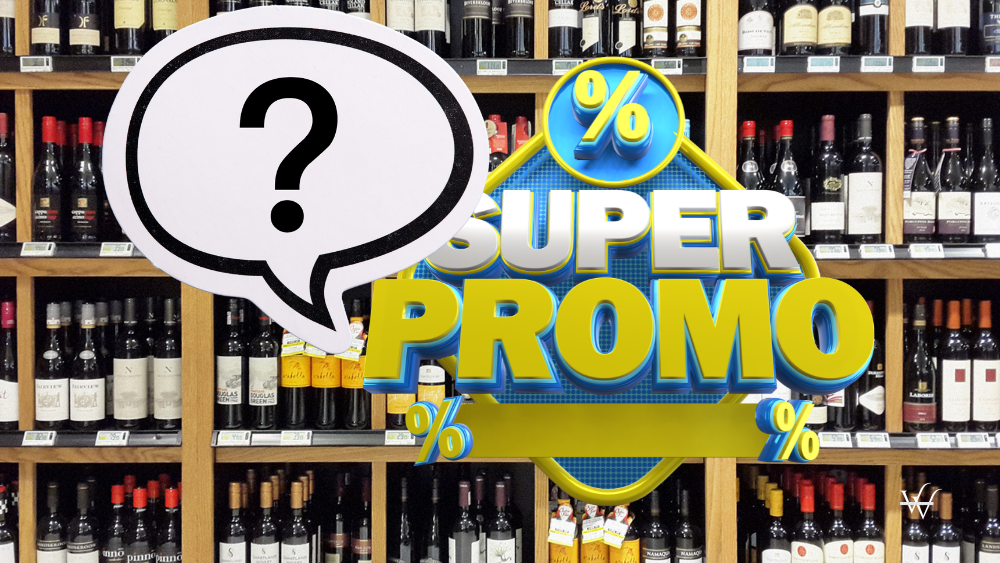On Thursday, September 4th, supermarket giant Lidl launched its annual “wine fair” campaign across France, offering a broad range of wines at exceptionally low prices—some under EUR 2 per bottle.
While the promotions have attracted consumer interest, they have also provoked an outcry from winegrowers and industry representatives, who warn that such practices devalue French wine and threaten the economic sustainability of producers.
The campaign catalog spans more than 30 pages and includes wines from Bordeaux, Languedoc-Roussillon, Rhône Valley, Loire, Alsace, Burgundy, Champagne, Corsica, and Gascogne. Notable offers include a 2024 Côtes-du-Rhône “vieilles vignes” AOP at EUR 1.89 (with a 4+2 promotion), ten Bordeaux wines priced below EUR 3, and numerous AOP and PGI wines, some carrying environmental certifications or medals.
Among the highlighted deals:
- AOP Bordeaux Supérieur HVE “Château la Vaillante” 2023 – EUR 2.89
- AOP Blaye Côtes de Bordeaux HVE “Château les Charmilles” 2024 – EUR 1.95 (second bottle 50% off)
- AOP Médoc “Fort du Roc” 2023 – EUR 2.59
- PGI Côtes de Gascogne “Jas de l’Estanquet” – EUR 1.99
- AOP Corbières “Lacotte Grand Séjour” 2024 – EUR 2.19
- AOP Alsace Gewurztraminer “Réserve Camille Meyer” 2023 – EUR 3.89
While Lidl promotes the fair under the slogan “good wine doesn’t have to be expensive to be exceptional,” many in the wine industry disagree.
Producers React: “An Attack on Value”
Industry voices have been quick to condemn the campaign. Gérard Bancillon, president of the Confederation of PGI Wines, argues that the ultra-low prices damage the image of French wine:
“All regions are affected by the fall in price and the product’s image. Consumers may come to believe it is possible to produce wine at these prices when in reality it is a surplus with no commercial value.”
Damien Gilles, president of the Côtes du Rhône Winemakers’ Union, revealed that Lidl bought 20,000 hectoliters of AOC Côtes-du-Rhône at under EUR 90 per hectoliter—well below the estimated production cost of EUR 120 per hectoliter. He denounced the practice as one that “devalues work and expertise” and called for urgent measures to stop such pricing.
Jérôme Despey, president of FranceAgriMer’s wine council and first vice-president of FNSEA, labeled the catalog “scandalous” and proposed adapting the Egalim law—which protects agricultural producers from below-cost sales—to cover the wine sector. A legislative project is reportedly under discussion with the National Committee of Interprofessions of AOP and PGI Wines (CNIV) to establish minimum price ranges that safeguard producer incomes.
A Structural Issue
The wholesale sector also raised alarms, noting that Lidl applies this aggressive pricing policy year-round, not only during promotions. In recent months, the retailer has sold AOP Bordeaux reds at €1.39, rosé at EUR 1.19, AOP Côtes-de-Provence rosé at EUR 2.50, and IGP Pays d’Oc whites and rosés at EUR 1.35.
Jean-Marie Fabre, president of the Vignerons Indépendants de France, warned that such offers “do not cover costs” and that many independent producers are being forced to sell below sustainable levels, jeopardizing their future.
Balancing Affordability and Sustainability
The Lidl campaign shines a spotlight on the tension between consumer demand for affordable wines and the pressing need to ensure fair compensation for winemakers. For regions like Bordeaux, Languedoc, and the Rhône Valley—already struggling with oversupply and falling demand—the fear is that such campaigns could worsen economic challenges and further erode the prestige of French appellations.
While Lidl insists it is democratizing access to good wines, producers argue that true quality requires fair value, and that the image of French wine could be undermined if low-price strategies continue unchecked.
The controversy underscores a critical debate in the French wine industry: how to reconcile accessibility for consumers with the sustainability and dignity of the producers who bring these wines to life.
Source: Vinetur

